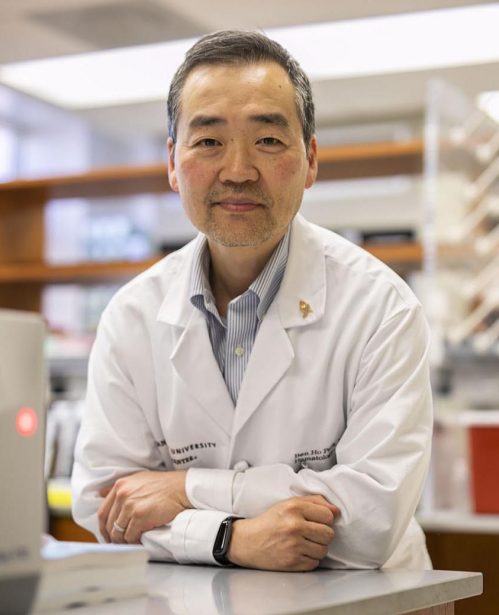Making Great Progress
January 14, 2025

We have made great progress in recent decades with cures and better treatments for many cancers, but that has not been the case with gliomas — tumors that originate in the brain — and particularly glioblastoma, the most aggressive form. With the assistance and support of families who have been affected by gliomas, we are establishing a Brain Tumor Center at Vanderbilt-Ingram Cancer Center that will develop new therapies, expand the availability of clinical trials and train more glioma specialists. The cover story of this Momentum describes the people behind this initiative and explains the goals for the Brain Tumor Center.
Also in this issue, we celebrate our clinical trial successes. Children who relapse from the most common subtype of acute lymphoblastic leukemia (ALL) now have better survival because of blinatumomab, a therapy our pediatric oncologists offered through a clinical trial that has become the standard of care. A young woman — who was diagnosed with ALL at age 7, fought the cancer into remission and then relapsed at age 15 — shares her journey and career path to help others with cancer.
We continue to achieve breakthroughs with clinical trials. One of our oncologists is the principal investigator of a national trial that has shown that through a dual immunotherapy regimen, plus short-course radiation, patients with rectal cancer that is termed “microsatellite instability-high” can avoid chemotherapy and colostomy-requiring surgery. We have teams of researchers that continue to keep us at the vanguard of another immunotherapy, CAR-T (chimeric antigen receptor T cell). Interim results from a new “off-the-shelf” CAR-T therapy — one that bypasses the time-consuming process of reengineering a patient’s own immune cells to target cancer by instead using donor cells — demonstrated a 91% overall response rate for patients with multiple myeloma who had not responded to existing treatments or who had relapsed. Developing an off-the-shelf CAR-T is important because it will speed time to treatment for patients and offer an option for patients who are not healthy enough for their own T cells to be harvested and reengineered. Collectively, our experts are investigating several potential new CAR-T therapies, including one that involves an emerging medical treatment called CRISPR, a gene-editing technology.
Vanderbilt-Ingram’s surgical oncologists are also at the forefront of innovative technologies. A recent addition is histotripsy, which directs focused ultrasound waves to destroy metastatic tumors in the liver that would otherwise be inoperable. This is a groundbreaking technology recently approved by the Food and Drug Administration. While we develop new therapies, we simultaneously refine existing treatments to make them more tolerable and effective. A case in point is ongoing research to identify biomarkers that can help physicians predict who is at risk for allergies to chemotherapies, using ovarian cancer treatments as a model, so therapy protocols can be put into place to desensitize those patients and prevent anaphylactic reactions.
You can read about these treatment achievements and our initiatives to lessen the cancer burden for patients and their families in this Momentum. We could not do this without people who participate in clinical trials, advocate for cancer research funding, share about their journeys to increase awareness and provide financial support.
No Comments »
No comments yet.
